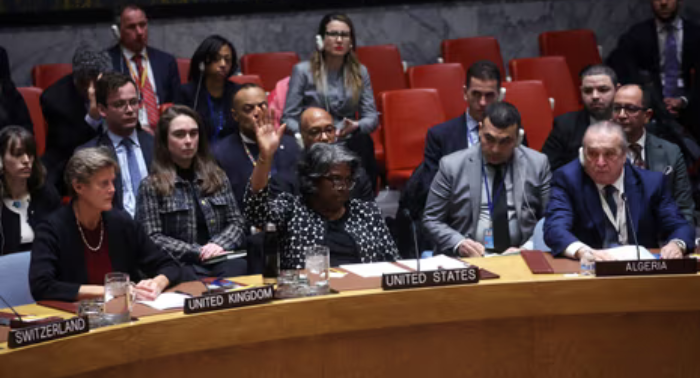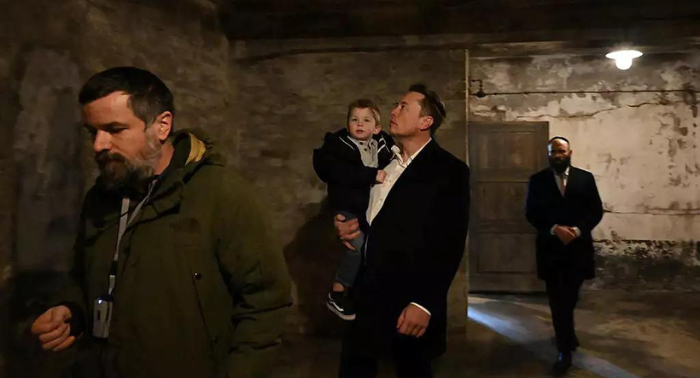The United States exercised its veto power on Tuesday to block an Arab-backed U.N. resolution calling for an immediate humanitarian cease-fire in the ongoing Israel-Hamas conflict in the Gaza Strip.
The vote in the 15-member Security Council saw 13 in favor, 1 opposed (the United States), and 1 abstention (the United Kingdom). This reflects broad global support for ending the more than four-month war, which began with Hamas’ unexpected invasion of southern Israel, resulting in approximately 1,200 fatalities and around 250 individuals taken hostage. According to the Gaza Health Ministry, over 29,000 Palestinians have been killed in Israel’s military offensive, although this figure does not distinguish between civilians and combatants.
This marks the third time the United States has vetoed a Security Council resolution demanding a cease-fire in Gaza.
The Biden administration had previously indicated its intention to veto the resolution, citing concerns that it could disrupt ongoing efforts to broker a deal between the conflicting parties aimed at securing at least a six-week cessation of hostilities and the release of all hostages.
In a surprising move before the vote, the United States introduced its own draft resolution to the Security Council. This proposal supports a temporary cease-fire in Gaza contingent upon the release of all hostages and calls for the lifting of restrictions on the delivery of humanitarian aid. According to the draft resolution obtained by The Associated Press, these measures would contribute to creating conditions conducive to a sustainable cessation of hostilities.
Deputy U.S. Ambassador Robert Wood stated to reporters that the Arab-backed resolution was not conducive to achieving the three primary objectives sought by the United States: the release of hostages, increased humanitarian aid delivery, and a prolonged cessation of conflict.
The U.S. draft resolution presents an alternative option for consideration, with further discussions expected in the coming days. A senior U.S. official emphasized the importance of intensive negotiations and the urgency of the situation, without specifying a timeline for a vote.
Arab nations, supported by numerous U.N. member countries, have consistently advocated for a cease-fire in Gaza. Tunisia’s U.N. Ambassador Tarek Ladeb stressed the urgent need for such action, particularly in light of Israel’s plans to evacuate civilians from Gaza’s southern city of Rafah, a move that could exacerbate an already dire humanitarian situation.
The Arab-backed resolution not only calls for an immediate cease-fire but also demands the unconditional release of all hostages, rejects forced displacement of Palestinian civilians, and underscores the need for unhindered humanitarian access throughout Gaza. It reiterates the council’s call for compliance with international law and condemns all acts of terrorism.
In a strong message to Israel, the U.S. draft resolution warns against proceeding with a major ground offensive in Rafah under current circumstances and highlights the potential consequences of further civilian displacement.
U.S. Ambassador Linda Thomas-Greenfield emphasized President Biden’s efforts to secure a hostage deal, noting that while challenges remain, key elements are on the table. The proposed deal presents the best opportunity to secure the release of hostages and facilitate the delivery of life-saving aid to Palestinians in need.
Following the U.S. veto, the Arab Group may take their resolution to the U.N. General Assembly, where it is likely to pass, although such resolutions are not legally binding. The Security Council is expected to continue discussions on the U.S. draft resolution, which includes condemnation of Hamas’ actions and addresses concerns regarding potential demographic or territorial changes in Gaza.




